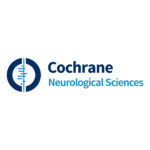
In the anamnestic reconstruction of a possible transient loss of consciousness, do not fail to clarify whether the characteristics of the suspension of consciousness actually occurred and to draw up a list of all drugs in use.
The loss of consciousness must be adequately witnessed, or the patient must be able to state that for a certain interval of time he has not perceived himself or the surrounding environment; it is common that the diction loss of consciousness is used inappropriately to describe a general malaise.
The drug history allows to identify the habitual or accidental use of drugs that favor a hypotensive condition or a bradycardia. In this case, adequate therapeutic indications (for example: reduction of the dosage or number of antihypertensives, replacement of the beta blocker) can prevent the episode from recurring.
Sources
1. NICE National Institute for Health and Clinical Excellence. Transient loss of consciousness (‘Blackouts’) Management in adults and young people. London: Royal College of Physicians (UK); 2010:8, 14.
2. NICE National Institute for Health and Clinical Excellence. Clinical Guidelines, No. 109Transient loss of consciousness (‘blackouts’) in over 16s London: 2014 Sep. ISBN-13: 978-1-4731-2287-1
3. ESC Guidelines for the diagnosis and management of syncope European Heart Journal, Volume 39, Issue 21, 01 June 2018, Pages 1883–1948
4. Shen W-K, Sheldon RS, Benditt DG, Cohen MI, Forman DE, Goldberger ZD, Grubb BP, Hamdan MH, Krahn AD, Link
MS, Olshansky B, Raj SR, Sandhu RK, Sorajja D, Sun BC, Yancy CW. 2017 ACC/AHA/HRS guideline for the evaluation and management of patients with syncope: a report of the American College of Cardiology/American Heart Association Task Force on Clinical Practice Guidelines and the Heart Rhythm Society. Circulation. 2017;136:e60–e122. DOI: 10.1161/CIR.0000000000000499.
Download
PDFAttention. Please note that these items are provided only for information and are not intended as a substitute for consultation with a clinician. Patients with any specific questions about the items on this list or their individual situation should consult their clinician.


Recent Comments